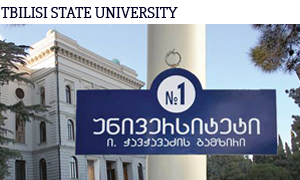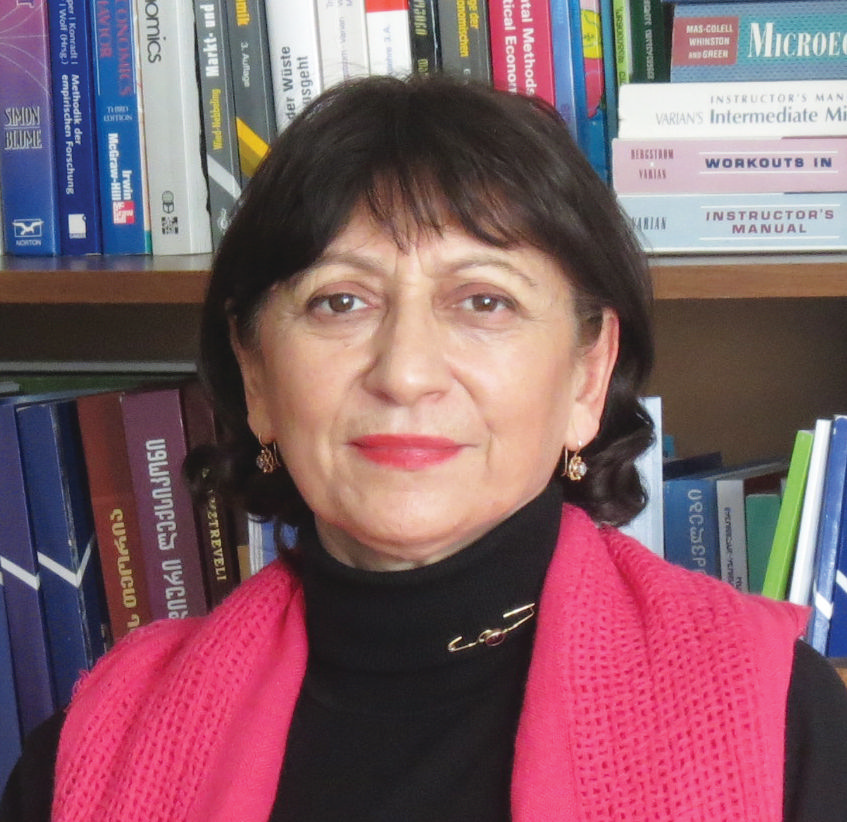
FACULTY OF ECONOMICS AND BUSINESS
VITICULTURE, WINE MAKING AND DIVERSIFICATION OPPORTUNITIES IN GEORGIA
A study on viticulture, wine making and diversification opportunities in Georgia started in 2011, to identify the challenges to farming and viticulture and prospects for diversification. Farming has an important role in the economic structure of the EU countries and it is vital to develop models for Georgia that comply with European requirements and with worldwide experience. The research team studied European experiences and models in winemaking and viticulture and developed recommendations for adapting diversification models according to Georgian reality.
Eter Kharaishvili, TSU Professor, PhD in Economics, Head of Microeconomics Department at TSU is leading the research project on adapted diversification in the fields of farming and viticulture. The research was undertaken at the Microeconomics Department of the Faculty of Economics and Business with significant support from the Ministry of Agriculture of Georgia. Currently, the research team is working within a framework of shortlisted and financed projects such as “Farming diversification opportunities – the EU models and challenges in Georgia”. The academic research team includes Marina Chavleishvili, Marina Natsvaladze, Ia Natsvishvili, Ineza Gagnidze, as well as Assistant Professor, Tamar Lazariashvili. Additionally, the following students in the Faculty are contributing to the research: Ana Lomouri, Rusudan Gurashvili, and Salome Ekizashvili.
 In Eastern European countries, from 3.4-hectare to 9.0 – hectare lands are used for farming; in Central Asia this figure runs from 1.5 to 5.0 hectares; and in Georgia, 75% of farms are 1 to 5 hectares. In Eastern European countries, the number of people employed in agriculture has continually decreased, contrary to the tendency in Central Asian countries and Georgia.
In Eastern European countries, from 3.4-hectare to 9.0 – hectare lands are used for farming; in Central Asia this figure runs from 1.5 to 5.0 hectares; and in Georgia, 75% of farms are 1 to 5 hectares. In Eastern European countries, the number of people employed in agriculture has continually decreased, contrary to the tendency in Central Asian countries and Georgia.
This indicates that diversification would be an effective strategy for integrating Georgian food and wine products into the global farming market. Because of its location, Georgia is a hub between Europe and Asia, and for this reason forming a diversified economy combining several sectors is a rational choice. A new economic model should ensure the preservation of our cultural identity, the achievement of self-sufficiency in major food products, an effectively functioning transportation and energy corridor, and increased public well-being. Studying agricultural diversification in Georgia greatly contributes to its economic transformation.
The team came to several significant conclusions. Qualitative research revealed findings that show how farmer survival strategies may interfere with the development of the sector’s expansion and restructuring. There is poor coordination between farmers and market agents; matching product types is limited; only a small number of farmers are knowledgeable about the farming industry; farmers are poorly qualified and there is little information for them on diversification possibilities; farming plots are divided, and the land market is low, with limited expansion possibilities. Wine market diversification strategies need to be changed, but there is no sound statistical data or analytical information on farming, which makes it difficult to undertake proper research on this sector or to make any well-informed significant decisions. Finally, there is no legal basis for stimulating market expansion and strategic development.
The research team drafted key recommendations for diversification in the wine industry, and how to apply European models in Georgia. The research shows that it is vitally important to improve the structure of grape supply by varietal alignment of wine and table grapes; to improve coordination between small farmers; when forming farmers’ economic cooperation groups, adopt relevant rules and regulations; ensure the effective provision of modern theoretical knowledge and technological information to farmers and ensure effective information sharing. Furthermore, it is necessary to work out a strategy for cold storage facilities and the expansion of small wineries; the diversification of the Georgian wine market should be implemented at the traditional market level while reducing its dependence on volatile markets; additional measures should be taken to maintain diversification / expansion of the wine market on strategic markets (including USA, China, Great Britain and Poland); and a strategy of wine market diversification should be created for new markets (Baltic States, Japan).


Pic.: In Georgian Vine Factory
The researchers believe the project will enable state policy-making and implementing bodies to adopt scientifically substantiated recommendations on farming diversification opportunities. The research results will also assist local, regional and central government representatives to develop joint agricultural projects.
This is the first time that research on farming diversification has been carried out in Georgia. Since 2015, the study has been continued within the framework of a theoretical and practical research project. Scientific publications on the study and its results have been published in various international journals and collections of conference papers:
ICEIBM 2014: 16th International Conference on Economics, Industrial and Business Management, October 27-28 Barcelona, Spain.
International journal: Kharaishvili, E., Chavleishvili, M., Natsvaladze, M. (2014) –“Trends and Prospects for the Development of Georgian Wine Market”. World Academy of Science, Engineering and Technology, International Science Index 94, International Journal of Social, Behavioral, Educational, Economic and Management Engineering, 8(10), 3145 – 3149.
“Farming Diversification and the Corresponding Policy for its Implementation in Georgia”, ICMORE 2015: 17th International Conference on Management, Operations Research and Economics, Rome, Italy, 2015, May 5-6); (Kharaishvili, E. (2015). “Farming Diversification and the Corresponding Policy for Its Implementation in Georgia”. World Academy of Science, Engineering and Technology International Journal of Social, Behavioral, Educational, Economic and Management Engineering Vol: 9, No: 5, 2015).
Small Farming Diversification Opportunities in Georgia, ICEBMM 2016: 18th International Conference on Economics, Business and Marketing Management




